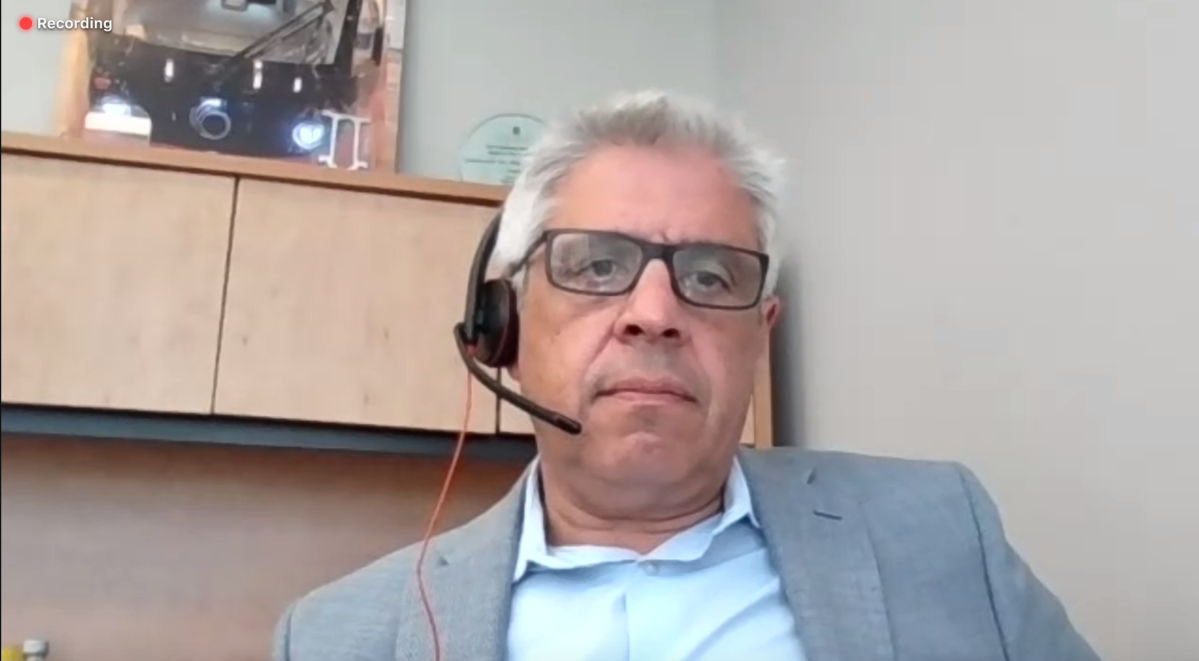An Ottawa light-rail train derailment on Sunday caused more damage than initially thought, a Rideau Transit Maintenance executive said Monday, and it could be three weeks before full service is restored to the troubled transit system.

RTM chief executive Mario Guerra made the comments to media after a five-hour transit commission meeting on Monday in which councillors and commissioners lobbed questions at city staff, LRT execs and, at times, each other, over the state of the Confederation Line.
Ottawa transit boss John Manconi was among those Monday cautioning anyone from drawing conclusions about the cause of the latest derailment and timeline for service restoration, suggesting that it was still very early in the investigation.
The federal Transportation Safety Board (TSB) is currently helming the probe at the site between Tremblay and Hurdman stations where a westbound train derailed shortly after noon on Sunday.
There were no injuries reported to the 12 passengers on board, but the entire line remains out of service, with R1 replacement bus service operating across the length of the Confederation Line in the meantime.
Guerra said Monday that it could be up to three weeks until full service is restored as “there’s a lot more infrastructure damage than we originally thought.”
“We’re probably looking, to get the entire system back up and running … I would say three weeks, probably. We could maybe look at running some partial service, but again that really depends on the root cause of the incident,” he said.
More accurate timeline estimates could come in the next two days, once contractors have taken a closer look at the system and the extent of repairs needed.
All trains will need to be inspected and cleared before service returns.
Transit commission also approved a motion from chair Allan Hubley on Monday to have an independent safety inspector sign off on all rectification plans before putting trains back on the line, adding another layer of oversight to the return to service.
Manconi said at the start of Monday morning’s meeting that initial findings suggest the recent derailment of two of the 10 axles on the train could’ve been caused by a “sander” attached to the vehicle that’s used to dispense sand in cold weather and icy environments.
“The bracket that holds that unit could’ve become dislodged and could’ve caused the derailment,” he said.
He couched the early analysis by saying the update was based on “very preliminary findings” that haven’t been signed off by the TSB or other oversight bodies.
Manconi noted that the latest incident does not appear to be related to the axle-bearing assembly issues that derailed a train in early August near Tunney’s Pasture Station.
However, the train involved in Sunday’s derailment had recently returned to service after getting repairs done on one of its axles. Guerra estimated during the transit commission meeting that it had only been back in service for roughly a week before the latest derailment.
While investigators know an issue with the axle-bearing assembly was the reason for the derailment last month, the probe of that incident will last another few months before a root cause of the issue is known.
“We know what the issue is, what they need to determine is why it occurred,” said Troy Charter, Ottawa’s director of transit operations.

Political turmoil over transit
Many transit commissioners, who had been rebuffed in pursuing an emergency meeting to discuss the August derailment and other recent transit issues in Ottawa, said they were frustrated with poor performance of the system, which marked its two-year anniversary earlier this month.
Gloucester-Southgate Coun. Diane Deans said OC Transpo is “a system in crisis” during Monday’s meeting.
Others raised concerns about a lack of accountability over Ottawa’s LRT system.
Capital Coun. Shawn Menard called for Hubley to step down from his role in a tense exchange, during which the chair criticized councillors and commissioners who held a rally outside city hall last month in lieu of the requested meeting.
Hubley later offered an apology to Menard, at the prompting of commissioner Sarah Wright-Gilbert.
Somerset Coun. Catherine McKenney attempted to pass a motion calling for the commission to strike two task forces: one of independent rail experts to assess the quality of the system to date; another to provide suggestions for a safe path forward.
The councillor’s motion was voted down after some debate.
Manconi noted that the city has contracted an independent legal counsel to conduct a similar review of the system to chart Ottawa’s path forward in legal disputes with Rideau Transit Group, but Wright-Gilbert noted that these findings will be made available largely via in-camera sessions at the finance and economic development committee, rather than in an open forum for the public to scrutinize.
'We didn't get a lemon': Manconi
In response to questions from the media over the state of Ottawa’s LRT system, Manconi defended the overall product and ensured it remains salvageable despite the turbulent two years.
“We didn’t get a lemon,” he said. “We had 12 months of thousands and thousands of uninterrupted trips. … There’s nothing that demonstrates or proves that it’s unfixable.”
Manconi cited regular conversations he has had with rail officials elsewhere in North America that suggest that the Confederation Line’s most public issues — door jams, cracked wheels, catenary problems, axle-bearing derailments — happen in systems across the world.
- Train goes up in flames while rolling through London, Ont. Here’s what we know
- Budget 2024 failed to spark ‘political reboot’ for Liberals, polling suggests
- Wrong remains sent to ‘exhausted’ Canadian family after death on Cuba vacation
- Peel police chief met Sri Lankan officer a court says ‘participated’ in torture
What’s given the local system such a bad reputation, he suggested, is that they happened within the first two years of the system rather than over the course of its lifetime.
He said what gives him long-term confidence in the life of the system is that once these issues crop up and are fixed, they should remain fixed for good. He cited the doors jamming, a regular failure in the early days of the system, as something that no longer crops up.
Monday’s meeting marked Manconi’s final transit commission meeting as the general manager of transportation services in Ottawa before he retires on Sept. 30.
City manager Steve Kanellakos said he is negotiating with the city’s preferred candidate now, but it is unlikely they will be ready to start by Oct. 1, as they are currently out-of-city.
An interim GM will be installed after Manconi leaves, but he said he has not selected a temporary replacement yet.






Comments